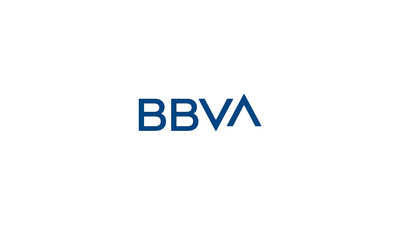BBVA Research publishes economic analysis: Labor market loses momentum, confirming need for additional stimulus
BBVA Research's latest analysis reveals that U.S. unemployment figures indicate a weakening labor market as the pandemic situation worsens and fiscal support declines. In November, nonfarm payrolls increased by only 245,000, a sharp drop from 610,000 in October, and below market forecasts. A total of 56% of jobs lost since the pandemic began have been recovered, but unemployment remains nearly double pre-pandemic levels. Key sectors such as retail and professional services weakened, while education and health services showed some growth.
- Transportation and warehousing sectors saw the largest monthly job gain since September 1997.
- Education, health services, manufacturing, and construction continue to gain jobs at a decent pace.
- Nonfarm payrolls rose by only 245,000 in November, down from 610,000 in October.
- Permanent unemployment is increasing, signaling long-term pandemic effects.
- Overall weakness in key recovery sectors affects the labor market.
Insights
Analyzing...
HOUSTON, Dec. 7, 2020 /PRNewswire/ -- According to the latest economic analysis from the BBVA Research team, November's unemployment figures suggest that the labor market is losing momentum as the pandemic worsens and fiscal support wanes. Additionally, the ongoing increase in permanent unemployment reveals the damaging long-term effects of the pandemic. Both situations highlight the need for Congress to take action and adds pressure on the Fed to take more decisive action.
Nonfarm payrolls rose by 245,000 in November, down from 610,000 in October and significantly lower than market expectations, according to the Bureau of Labor Statistics. To date, the economy has recovered 56 percent of jobs lost since the start of the pandemic, while the number of unemployed remains nearly twice the pre-pandemic levels.
The analysis, co-authored by BBVA Chief Economist Nathaniel Karp and Principal Economist Marcial Nava, notes the sharp slowdown in nonfarm payrolls is a response to three key factors: a decline in government employment resulting from fewer temporary census workers, a decline in retail trade jobs, and an overall weakness in the sectors that had been supporting the recovery including professional business services, leisure and hospitality.
Education and health services, manufacturing and construction continue to gain jobs at a decent pace, while transportation and warehousing posted its largest monthly gain since September 1997, supported by significant job growth in couriers and messengers. This last category reflects the massive shift to online consumption during the pandemic, according to the economists' analysis.
BBVA USA's research team analyzes the U.S. economy and Federal Reserve monetary policy. For its analyses, the economists create models and forecasts for growth, inflation, monetary policy and industries. The Economic Research team also follows a variety of issues that affect the Sunbelt states where BBVA USA operates. Follow their work on Twitter @BBVAResearch and @BBVANews_USA.
Read the full report here.
See the complete library of BBVA Research publications here.
For more BBVA news visit, www.bbva.com and the U.S. Newsroom.
Additional news updates can be found via Twitter and Instagram.
For more financial information about BBVA in the U.S., visit bbvausa.investorroom.com.
About BBVA
BBVA Group
BBVA (NYSE: BBVA) is a customer-centric global financial services group founded in 1857. The Group has a strong leadership position in the Spanish market, is the largest financial institution in Mexico, it has leading franchises in South America and the Sunbelt Region of the United States. It is also the leading shareholder in Turkey's Garanti BBVA. Its purpose is to bring the age of opportunities to everyone, based on our customers' real needs: provide the best solutions, helping them make the best financial decisions, through an easy and convenient experience. The institution rests in solid values: Customer comes first, we think big and we are one team. Its responsible banking model aspires to achieve a more inclusive and sustainable society.
BBVA USA
In the U.S., BBVA is a Sunbelt-based financial institution that operates 641 branches, including 330 in Texas, 89 in Alabama, 63 in Arizona, 61 in California, 44 in Florida, 37 in Colorado and 17 in New Mexico. The bank ranks among the top 25 largest U.S. commercial banks based on deposit market share and ranks among the largest banks in Alabama (2nd), Texas (4th) and Arizona (6th). In the U.S., BBVA has been recognized as one of the leading small business lenders by the Small Business Administration (SBA) and ranked 8th nationally in terms of dollar volume of SBA loans originated in fiscal year 2018.
![]() View original content to download multimedia:http://www.prnewswire.com/news-releases/bbva-research-publishes-economic-analysis-labor-market-loses-momentum-confirming-need-for-additional-stimulus-301187773.html
View original content to download multimedia:http://www.prnewswire.com/news-releases/bbva-research-publishes-economic-analysis-labor-market-loses-momentum-confirming-need-for-additional-stimulus-301187773.html
SOURCE BBVA USA








